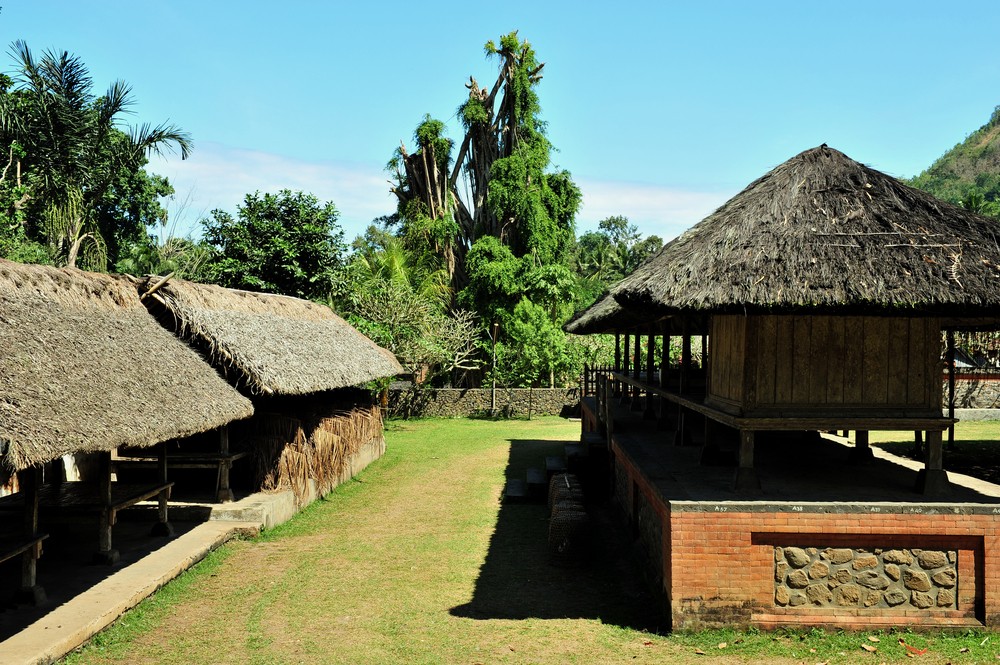Popular Reads
Top Results
Can't find what you're looking for?
View all search resultsPopular Reads
Top Results
Can't find what you're looking for?
View all search resultsDifferent cultural insights in Bali's Tenganan village
Change text size
Gift Premium Articles
to Anyone
T
enganan village in Karangasem regency, 60 kilometers east of Denpasar, stands in stark contrast to the crowded areas of Kuta or Legian as it offers a different cultural insight into Bali.
Since its establishment in the eighth century, as estimated by experts, Tenganan has preserved the traditional Balinese culture of Bali Aga. Gender equality has always delineated the caste system of the secluded village.
Tour guide and local resident Nyoman Suwita outlined a number of essential facts about the relatively unknown Tenganan for kompas.com on Thursday.
Village's origins
“As claimed by stories believed by the Tenganan people, the establishment of the village originated from the first king of Bali in Gianyar, who lost a horse,” Nyoman said.
In exchange for a reward, the king ordered his people to search for his horse, and a Tenganan ancestor was believed to have found it dead. Hence, the king granted him a gift of land, its size to be determined by how far the animal’s carcass could be smelt.
Tenganan people outsmarted the king by dividing the horse’s carcass and taking pieces of it as far as they could. Today, with a population of 700 people, the village stretches across 917.2 hectares of land.
Despite a lack of historical sources to officially record the origins of Tenganan, its ancestral roots are believed to have come from the Majapahit kingdom, according to Nyoman.
(Read also: Bali yet to reap potential benefits from surfing)
Cultural customs
Ever since a fire in 1841, customary cultural guidelines have been derived from memory — some rules are written, some are not, Nyoman explained. Ruling systems, land rights, natural resource rights and usage, marriage, education and traditional ceremonies have their own rules in Tenganan.
In terms of marital rules, polygamy and divorce are strictly prohibited. The village observes endogamy, in which its people are bound by awig-awig (customary law) that obligates them to marry only Tenganan-blooded individuals. The Karangasem administration website notes that those who violate the rule will be exiled from the village.
Nyoman mentioned that the Tenganan community was often compared to the Baduy people of Banten, West Java, as they too follow an endogamy system. However, the former are open to modernization: electricity, communication devices and transportation are freely used.
Children are encouraged to pursue higher education, but are required to return for a year to be immersed in Tenganan culture during that period. “The child has to sleep without pillows and no mattress,” Nyoman added.
Gender equality
Amid its traditional customs, in terms of gender Tenganan’s culture is free from inequality. Women and men stand with equal power and uphold corresponding rights to become heirs. This sets them apart from the familial system followed by the general public in Bali.
“Tenganan village is one of the oldest villages, yet it's modern,” Nyoman said.
The ruling system of the village is also divided in two: an administrative system led by a village chief and a customary cultural system led by six married couples.
(Read also: Heli-surfing tour now available in Bali)
When to visit
January, February, June and December are the best times to visit, because as Nyoman pointed out, those are the months when traditional ceremonies are held. The durian harvesting season can also be an enjoyable time for visitors.
However, guests are not allowed to spend the night in the village. Proper permission from the customary cultural board is typically difficult to gain, even for educational or research purposes. (mra/kes)







